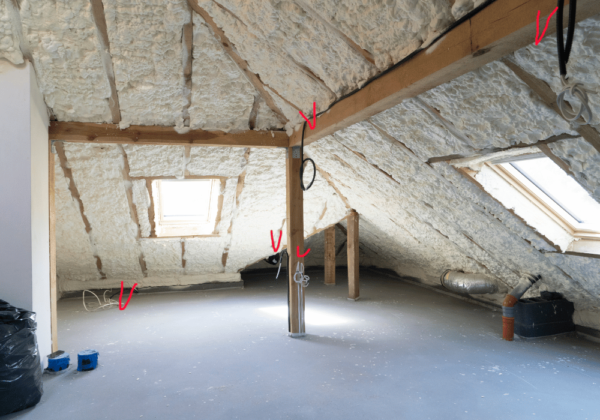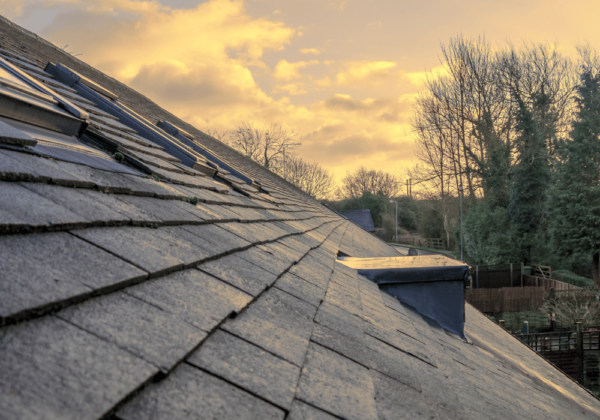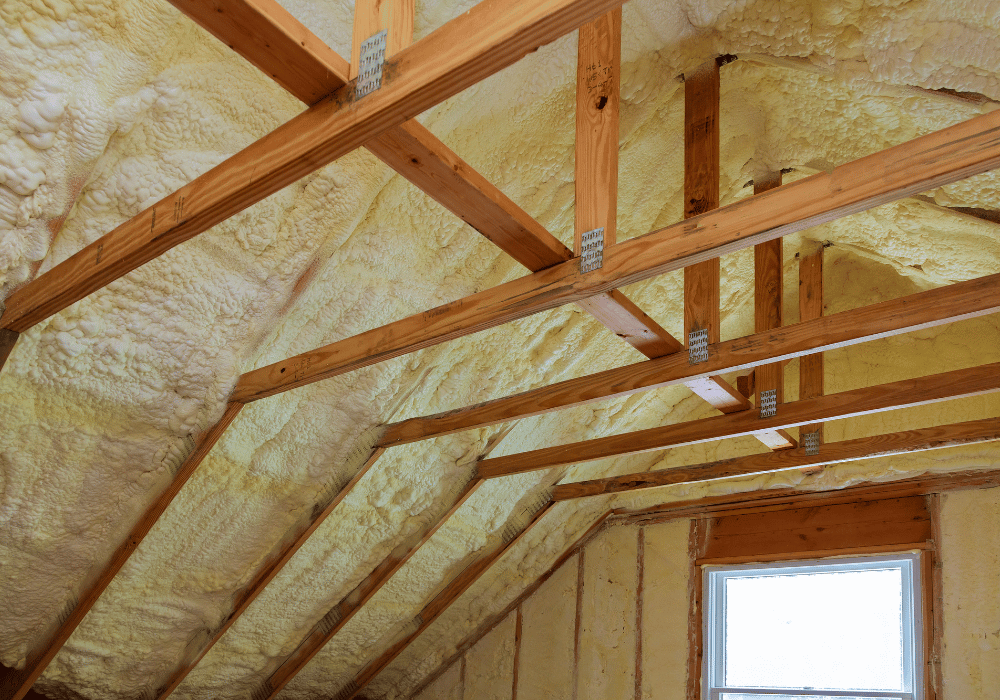When it comes to maintaining a home, many people focus on aesthetics, plumbing, and general upkeep but often overlook one crucial aspect—roof insulation. This blog explores how insulation affects roofs, highlighting its importance for young homeowners eager to make informed decisions.
Understanding the Basics of Roof Insulation
Insulation is often associated with keeping homes warm in the winter and cool in the summer. However, its role extends far beyond temperature regulation. Proper insulation contributes to energy efficiency, reduces utility bills, and even prolongs the lifespan of your roof.
How Insulation Works
 Insulation materials work by trapping air within their structure, thereby reducing the transfer of heat. During winter, insulation keeps the warm air inside, while in summer, it prevents the hot air from entering. This simple principle helps maintain a stable indoor temperature throughout the year.
Insulation materials work by trapping air within their structure, thereby reducing the transfer of heat. During winter, insulation keeps the warm air inside, while in summer, it prevents the hot air from entering. This simple principle helps maintain a stable indoor temperature throughout the year.
Types of Insulation
There are various types of insulation materials available, each with unique properties. Common types include fiberglass, foam board, spray foam, and cellulose. Each type has its pros and cons, making it essential to choose the right material based on your specific needs.
R-Value Explained
The R-value measures an insulation material’s resistance to heat flow. A higher R-value indicates better insulating properties. For roofs, an R-value between R30 and R60 is generally recommended, depending on the climate and roof type.
Benefits of Proper Roof Insulation
Improved Energy Efficiency
One of the most significant benefits of proper insulation is improved energy efficiency. By reducing heat transfer, insulation minimizes the workload on heating and cooling systems, leading to lower energy consumption and reduced utility bills.
Enhanced Comfort
A properly insulated roof enhances a comfortable living environment by ensuring consistent indoor temperatures. This eliminates cold drafts in the winter and overheated rooms in the summer, making your home more enjoyable year-round.
Prolonged Roof Lifespan
Proper insulation can also extend the lifespan of your roof. By preventing heat buildup and reducing temperature fluctuations, insulation minimizes the risk of roof damage caused by thermal stress, ice dams, and condensation.
Signs Your Roof Needs Better Insulation
High Energy Bills
If you have observed a sudden increase in your energy bills, it may indicate that your roof insulation is insufficient. Inadequate insulation forces your HVAC system to work harder, resulting in higher energy consumption.
Uneven Temperatures
Inconsistent indoor temperatures, such as cold spots in the winter or hot spots in the summer, can indicate poor insulation. Proper insulation helps maintain a stable and comfortable indoor climate.
Ice Dams
Ice dams are formed when warm air leaks through the roof, causing snow to melt and refreeze at the edges. This can lead to water damage, which could be prevented with proper insulation.
How Weather Affects Roofs in the Greater Toronto Area
The Greater Toronto Area (GTA) experiences a wide range of weather conditions, from hot summers to frigid winters, each impacting roof longevity and efficiency differently. Understanding these effects can help homeowners take preventive measures to protect their roofs.
Winter Challenges
Harsh winters pose several challenges for roofs in the GTA. Heavy snowfall can add significant weight, making snow removal essential to prevent structural damage. Additionally, fluctuating temperatures often lead to freeze-thaw cycles, which can cause ice dams—a common yet severe problem. Proper insulation is crucial to mitigate these risks, as it helps maintain a stable temperature and prevents warm air from leaking out, reducing the likelihood of ice dams forming.
Summer Heat
Summers in the GTA can be quite warm, with temperatures sometimes soaring above 30°C (86°F). This intense heat can cause roofing materials to expand and contract, leading to potential wear and tear over time. A well-insulated roof can help manage heat buildup, reducing the strain on roofing materials and helping to maintain a cooler indoor environment. This not only prolongs the life of the roof but also contributes to overall energy efficiency by lessening the demand on air conditioning systems.
Rain and Humidity
The GTA also sees its fair share of rainy days, particularly during spring and fall. Prolonged exposure to moisture can lead to issues such as mold, rot, and leaks, especially if the roof’s insulation and ventilation are inadequate. Ensuring proper insulation can help keep moisture at bay by maintaining a balanced temperature and reducing condensation, which in turn minimizes the risk of water damage.
Windy Conditions
 Strong winds are another factor to consider. Wind can lift shingles or other roofing materials, potentially leading to leaks and other forms of damage. High-quality insulation, paired with sturdy roofing materials and solid installation, can provide better resilience against wind damage, ensuring that your roof remains intact and functional during storms. Our oakville roofing contractors are available to help inspect, repair, and install your roof.
Strong winds are another factor to consider. Wind can lift shingles or other roofing materials, potentially leading to leaks and other forms of damage. High-quality insulation, paired with sturdy roofing materials and solid installation, can provide better resilience against wind damage, ensuring that your roof remains intact and functional during storms. Our oakville roofing contractors are available to help inspect, repair, and install your roof.

